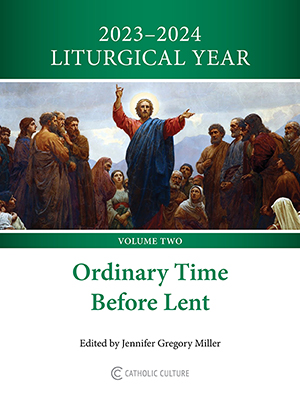In interview, Pope touches on Armenian genocide, deaconesses, Benedict XVI
June 27, 2016
In a June exchange with reporters-- in which he sparked headlines by saying that the Church should apologize to homosexuals (see today's separate CWN headline story)-- Pope Francis also spoke about the Armenian genocide, his relationship with Pope-emeritus Benedict XVI, the Pan-Orthodox Council, the "Brexit" vote, and the historic role of deaconesses in the Catholic Church.
As he returned to Rome after a weekend visit to Armenia, the Pope said that he had deliberatedly used the term "genocide" to describe the deaths of 1.5 million Armenians in 1915. During his youth in Argentina, he said, the term "genocide" was routinely used for that massacre. "I didn't know another," he said. The Pope acknowledged that the word did not appear in the prepared text of the speech he delivered shortly after his arrival, but he said that after hearing Armenian leaders speak of the killings, he decided to refer directly to "genocide."
The Pontiff went on to say that there were three genocidal campaigns in the 20th century: "The first was the Armenian, then that of Hitler, and the last is that of Stalin." He added that there had been other "small ones," including "another in Africa." In each case, the Holy Father observed, "the great international powers looked in the other direction."
Questions about his call for a study of the historic role of deaconesses, the Pope complained about the media coverage of his suggestion:
They said: "The Church opens the door to deaconesses." Really?! I was a bit annoyed, because this is not telling the truth of things.
The real aim of the study that he suggested, the Pope explained, would be to clarify the status of women who served in the early Church as "deaconesses"-- a role that appeared to be limited.
Regarding the role of Pope-emeritus Benedict XVI, Pope Francis said that his predecessor is "the wise grandfather." He recalled that when he announced his resignation, Benedict XVI promised his obedience to his successor, "and he's done that." Pope Francis said that he had heard reports that some people have complained to Benedict about "this new Pope," and "he chased them away."
Reflecting on the Pan-Orthodox Council, which had just concluded in Crete, the Pope said: "I think the result is positive." The fact that leaders of the different Orthodox churches had gathered to speak and pray together, he said, is "extremely positive."
Answering a question about the "Brexit" vote, the Pope said expressed some misgivings about divisions within Europe, but indicated that he had not studies the issue carefully. "For me, unity is always better than conflict," he said, "but there are different ways of unity."
For all current news, visit our News home page.
Further information:
All comments are moderated. To lighten our editing burden, only current donors are allowed to Sound Off. If you are a current donor, log in to see the comment form; otherwise please support our work, and Sound Off!
-
Posted by: bruno.cicconi7491 -
Jun. 28, 2016 5:47 AM ET USA
I think that to say that unity is always better than conflict, without qualification, goes against the Gospel. "Didn't come to bring peace but the sword", "goats and sheep", "downfall of many in Israel", "the world will persecute you", "members of the household against each other" - the references are just too many to allow us to fool ourselves into seeking a center-less unity just for the sake of unity.
-
Posted by: james-w-anderson8230 -
Jun. 27, 2016 8:13 PM ET USA
"For me, unity is always better than conflict," I wish he would practice this when he is giving interviews to the press!








